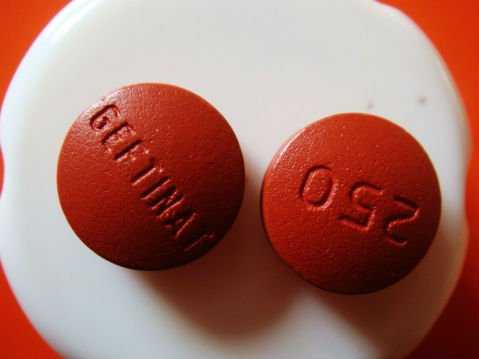Cancer Res:多吉美或成多发性骨髓瘤治疗新药物
2012-09-06 liuchun 生物谷
近日,瑞典卡罗琳学院的研究人员发现用于治疗晚期肾癌和肝癌的药物多吉美(sorafenib)对多发性骨髓瘤(multiple myeloma)同样有效。相关论文于9月4日发表在国际期刊Cancer Research上。 多发性骨髓瘤是白血病的一种,通常被认为是不治之症,只在成年人中发病,且在40岁之前发病率低,患者年龄大多在60岁以上。骨髓瘤细胞存在于骨髓中,它的出现破坏了血细胞的正常产生。患者症

近日,瑞典卡罗琳学院的研究人员发现用于治疗晚期肾癌和肝癌的药物多吉美(sorafenib)对多发性骨髓瘤(multiple myeloma)同样有效。相关论文于9月4日发表在国际期刊Cancer Research上。
多发性骨髓瘤是白血病的一种,通常被认为是不治之症,只在成年人中发病,且在40岁之前发病率低,患者年龄大多在60岁以上。骨髓瘤细胞存在于骨髓中,它的出现破坏了血细胞的正常产生。患者症状是骨质疏松,易骨折,同时因脊柱缩短背部产生剧痛。其他症状有贫血、乏力、肾衰竭、易发生感染等。
此项研究的领导者Theocharis Panaretakis说,"近些年开发出的药物,如硼替佐米,已经提高了多发性骨髓瘤患者的生存率。但是由于不良的治疗反应、抗药性等,几乎所有的患者都出现复发,因此不得不寻找更好的治疗方法。"
研究者使用的是患者的骨髓瘤细胞和小鼠的细胞系。这些患者来自卡罗林斯卡大学医院,在此之前基本未做任何治疗。研究发现多吉美可通过抑制Mcl-1的蛋白表达水平促进人骨髓瘤细胞的凋亡。在骨髓瘤细胞对硼替佐米产生耐受之后,多吉美仍可发挥作用。随后小鼠体内的实验结果也发现,多吉美可以阻止或延缓多发性骨髓瘤的病程。因此,研究者认为多吉美可以与其他药物联合使用治疗多发性骨髓瘤。
编译自Possible new therapy for the treatment of myeloma

doi:10.1158/0008-5472.CAN-12-0658
PMC:
PMID:
Sorafenib has potent anti-tumor activity in multiple myeloma in vitro, ex vivo and in vivo, in the 5T33MM mouse model
Pedram Kharaziha1, Hendrik De Raeve2, Charlotte Fristedt3, Qiao Li1, Astrid Gruber4, Per Johnsson1, Georgia Kokaraki1, Maria Panzar1, Edward Laane5, Anders Osterborg6, Boris Zhivotovsky7, Helena Jernberg-Wiklund3, Dan Grander1, Fredrik Celsing4, Magnus Bjorkholm4, Karin Vanderkerken8, and Theocharis Panaretakis
Multiple Myeloma (MM) is a B-cell malignancy characterized by the expansion of clonal plasma blasts/plasma cells within the bone marrow (BM) that relies on multiple signaling cascades, including tyrosine kinase activated pathways, to proliferate and evade cell death. Despite emerging new treatment strategies, MM remains at present incurable. Thus, novel approaches targeting several signaling cascades by using the multi-tyrosine kinase inhibitor (TKI), sorafenib, seems a promising treatment approach for MM. Here, we demonstrate that sorafenib induces cell death in MM cell lines and in CD138+ enriched primary MM patient samples in a caspase-dependent and independent manner. Furthermore, sorafenib has a strong anti-tumoral and anti-angiogenic activity in the 5T33MM mouse model leading to increased overall survival. MM cells undergo autophagy in response to sorafenib and inhibition of this cytoprotective pathway potentiated the efficacy of this TKI. Mcl-1, a survival factor in MM, is downregulated at the protein level by sorafenib allowing for the execution of cell death, since ectopic overexpression of this protein protects MM cells. Concomitant targeting of Mcl-1 by sorafenib and of Bcl-2/Bcl-xL by the antagonist ABT737 improves the efficacy of sorafenib in MM cell lines and CD138+ enriched primary cells in the presence of BM stromal cells. Altogether, our data support the use of sorafenib as a novel therapeutic modality against human MM and its efficacy maybe potentiated in combination with ABT737.
本网站所有内容来源注明为“梅斯医学”或“MedSci原创”的文字、图片和音视频资料,版权均属于梅斯医学所有。非经授权,任何媒体、网站或个人不得转载,授权转载时须注明来源为“梅斯医学”。其它来源的文章系转载文章,或“梅斯号”自媒体发布的文章,仅系出于传递更多信息之目的,本站仅负责审核内容合规,其内容不代表本站立场,本站不负责内容的准确性和版权。如果存在侵权、或不希望被转载的媒体或个人可与我们联系,我们将立即进行删除处理。
在此留言








#新药物#
61
#多吉美#
55
#多发性#
56